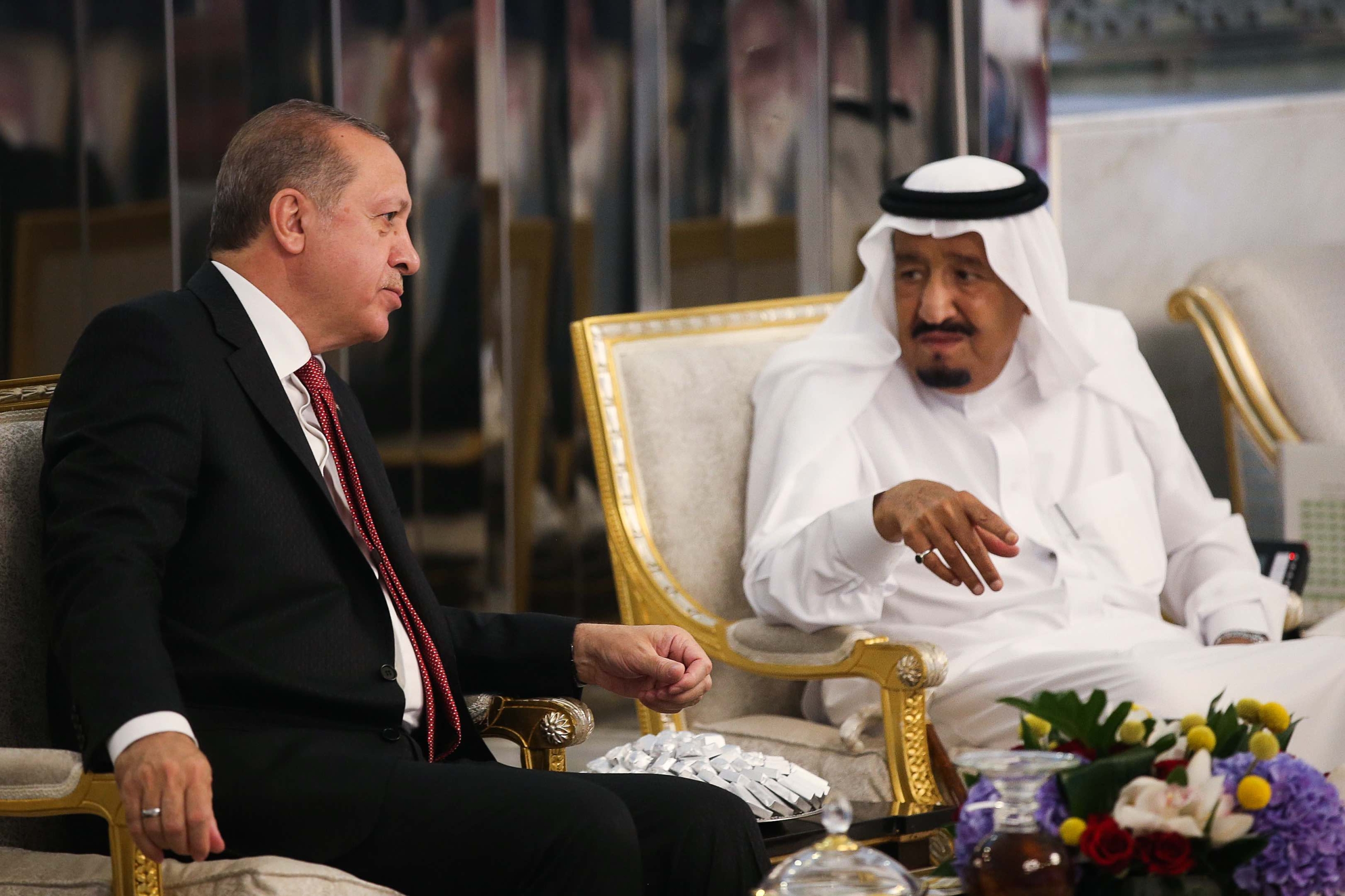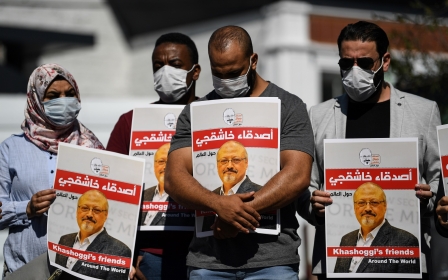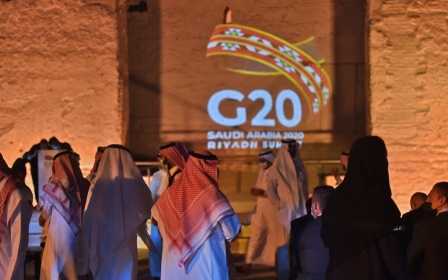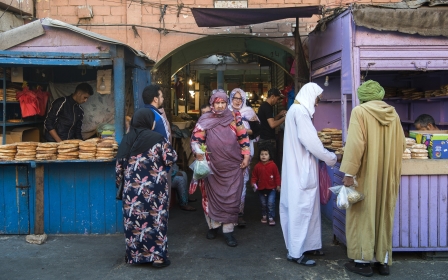Turkey seeking to repair Saudi relations with high-level contacts

Turkey is seeking to repair relations with Riyadh and move on from the murder of Jamal Khashoggi through top-level contacts with Saudi leaders, several Turkish officials told Middle East Eye.
Relations between the two regional powerhouses have been at a nadir since the Saudi journalist was assassinated in Istanbul two years ago.
But a window of opportunity for Turkey to turn a page came on Saturday, when Saudi Arabia's King Salman spoke to Turkish President Recep Tayyip Erdogan by phone to discuss the details of a G20 Riyadh Summit Leaders Declaration.
"Salman was trying to smooth Turkish opposition to the language used over climate change in the declaration," a Turkish official said.
'We don't have any issue other than the Khashoggi affair, which we have done as much as we could to resolve. It is time to move on'
- Turkish official
"In the call, Erdogan brought up the unofficial Saudi government boycott against Turkish goods that has been in place since the beginning of last summer. The king suggested organising a meeting between the foreign ministers to resolve the issue."
New MEE newsletter: Jerusalem Dispatch
Sign up to get the latest insights and analysis on Israel-Palestine, alongside Turkey Unpacked and other MEE newsletters
Last month, eight major Turkish business groups called on Saudi Arabia to end the unofficial embargo against goods and companies from Turkey and improve relations.
Earlier this year, several sources told MEE that Saudi government officials have been individually inviting the owners of Saudi businesses to the commerce ministry and urging them to not trade with Turkey.
Even though the latest official data from both countries doesn't record a big drop in trade so far, people involved in the matter said that the boycott intensified in October and statistics aren't yet available for that time. Turkish exports to the kingdom were over $3.1bn in 2019.
Khashoggi tensions
In the call last weekend, Erdogan suggested that Minister of Foreign Affairs Mevlut Cavusoglu could meet his Saudi counterpart in Niger on the sidelines of the Organisation of Islamic Cooperation's council of foreign ministers on Friday or Saturday.
Turkish officials told MEE that Turkey had never intended to harm the relationship with Riyadh, but only wanted to see the criminals behind the Khashoggi murder face justice.
Khashoggi, an MEE and Washington Post columnist, was killed by a Saudi hit squad in the kingdom's Istanbul consulate in October 2018. The CIA and a UN investigation concluded Crown Prince Mohammed bin Salman almost certainly signed off on the operation.
"We don't have any issue other than the Khashoggi affair, which we have done as much as we could to resolve," the official said. "It is time to move on."
However, Saudi officials, through the media and unofficial channels, have made it clear they believe the constant highlighting of the Khashoggi case is an attempt to undermine Mohammed bin Salman.
Twenty-six Saudi suspects, including top aides of the crown prince, are currently on trial in absentia in Turkey.
Turkish officials believe a meeting between Cavusoglu and Faisal bin Farhan Al Saud could reveal whether the two sides are on the same page or not.
"The phone call itself didn't turn a new page," said a second Turkish official. "We have to see where it will go."
Boycotts and hostility
The unofficial boycott is one of the more visible ways Saudi hostility is being played out in the region.
Last year, Riyadh blocked the entrance of dozens of Turkish trucks carrying textiles and chemicals into the country, while state-run media and leading business figures have advocated for boycotts of tourism and imports too.
In October, Ajlan al-Ajlan, head of Saudi Arabia's non-governmental chamber of commerce, called for the government to set up an official boycott in response to "the continued hostility of the Turkish government against [Saudi Arabia's] leadership, country and citizens".
Other than the Khashoggi murder, Riyadh and Ankara have found themselves in competition over various regional interests, including Libya, where the two back opposing sides in the conflict.
Turkey has also backed Saudi rival Qatar, deploying troops to the small Gulf emirate after Riyadh and its allies launched an embargo against Doha in 2017.
Middle East Eye delivers independent and unrivalled coverage and analysis of the Middle East, North Africa and beyond. To learn more about republishing this content and the associated fees, please fill out this form. More about MEE can be found here.





